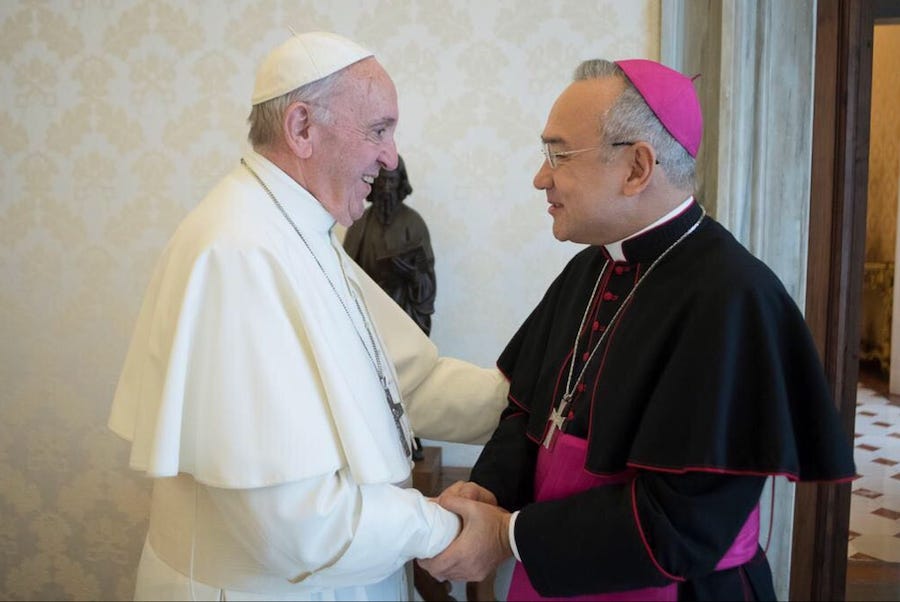ANALYSIS — CLERICAL SEXUAL ABUSE
Why the Príncipi case matters
The Vatican Secretariat of State’s “extraordinary procedure” to reinstate a laicized priest, blocked this week by the Dicastery for the Doctrine of the Faith, may prove to be the most significant Vatican story of the year.
Little is known, as yet, about why sostituto Archbishop Edgar Peña Parra issued an order trying to reinstate a man convicted of child sexual abuse by two interdiocesan tribunals in Argentina.
But his decision to do so, and the DDF’s move to publicly void the attempt, raises real questions about the role of Pope Francis, the rule of law, and the exercise of power in the Vatican.
According to canon law, Ariel Alberto Príncipi’s case was clear — convicted on multiple counts of abuse of minors by two local courts and laicized, his line of appeal was to the Dicastery for the Doctrine of the Faith, and ultimately to the pope personally, but through the same department.
Instead of that process, “subsequent evidence presented by some diocesan bishops of Argentina” (though it is not clear to whom it was presented) led to the a statement from the deputy of the papal secretariat, saying he had overturned the entire canonical process and its results and convened his “extraordinary procedure” to reinstate the priest to limited ministry, finding him guilty only of unspecified “reckless” behavior.
It is not known who else, if anyone, was involved in Peña Parra’s attempted star chamber process, which seems to have considered only the “evidence” presented by advocates and allies of Príncipi, and to have proceeded without reference to the victims, Church prosecutors, or the Vatican department with sole jurisdiction of the case.
To canonical ears, the entire process seemed as obviously “illegal” as it was “extraordinary.” The emphatic action from the DDF’s Archbishop John Joseph Kennedy to void the whole attempt and declare the case closed suggests his department came to the same conclusion.
But if the law is clear, and the canonical results now settled, it remains strikingly unclear how or why Peña Parra imagined his intervention could possibly stand — or how he came to be involved in a case nowhere near his office’s remit in the first place.
Regarding the latter question, there are several possible answers.
For years, officials in the DDF’s disciplinary section have complained privately about attempted interference from the Secretariat of State in high profile abuse cases. Often, this is because local bishops will direct their own lobbying efforts via the papal nuncio, who in turn passes what he’s asked or told up to the state department in Rome.
And it is possible that in the Príncipi case, the priest’s supporters among the Argentine episcopate did just that. Still, that goes nowhere to resolving the question of why the sostituto took it upon himself to try to overturn an entire canonical process and convene his own.
The more likely answer is that appeals on Príncipi’s behalf were presented outside of any ordinary channel of communication and made their way to Pope Francis personally, who handed the matter off to his chief of staff with some instruction — either direct or implied — for Peña Parra to resolve the matter.
Of course, if the pope were to circumvent the entire canonical process for handling accusations of child sexual abuse — a process he has staked much of his pontificate on strengthening, at least on paper — to reinstate a guilty priest as a favor to friends, it would be a scandal of cataclysmic proportions for Francis.

No comments:
Post a Comment